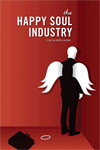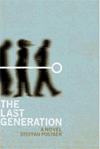The Acorn
November 16, 2020

On the last day of your senior year in high school you broke a rule by wearing shorts. The Principal called you out for the infraction, stopping you in the hallway. The details of your exchange are lost in time but you most certainly had been disrespectful. Whatever the case, he ended up banning you from the graduation ceremony. A harsh blow, but hardly the first one the school had dealt you during your tenure. Thankfully, it would be the last. Good riddance. Your mother was upset by the news. Maybe she cried. Maybe she took your side. You don’t remember. It was a long time ago. However, you do recall your father’s reaction. “Good,” he had said. “Now I don’t have to go.” You were relieved that he hadn’t gotten mad. But was it also possible that you’d been hurt by his indifference to your banishment (and by proxy his). After all, had you not been banned from the ceremony your father would have been forced to attend. At the time you viewed it as a win: neither of you sitting in the hot sun waiting for a piece of paper. But shouldn’t a father want to go to his son’s graduation?
The acorn does not fall far from the tree. Having three children, you too are put off by the myriad events you were made to attend. Parent-teacher conferences. Recitals. Soccer matches. Graduations. You were ambivalent about going to any and all of them. Sarah hated this about you. “Why must you only think of yourself?” She asked a million times. As time wore on, she would become even more direct: “You’re going, whether you like it or not.”
And go you did. Sometimes grumbling, rarely happy about it, always happy when it was over. You have wondered about this attitude. Many times. It’s not that you didn’t want your children doing these things you just didn’t want to do it with them. It was nerve wracking watching Remy hammering away at the piano or Callie being bested on the soccer field. Worse was enduring the other children. That was the opposite of entertaining. What did Oscar Wilde once say? Hell is other people’s children. They bored you to annoyance.
But you went. Dutifully. You have Sarah to thank for this.
After joining AA, you learned to name your character defects and that your principal sin was one of self-centeredness. Early on, you recall a member’s lamentation about drinking in his car while his daughter played the cello. How low can one go? He asked the group. Join the club you wanted to say. It went without saying.
Your upbringing demanded that you become self-sufficient. Your difficult surroundings forced you ever deeper into your head, where you created fantasies to offset the growing fears and frustrations of the outside world. You became introverted and built your life around it – it being you. Reading, writing, collecting butterflies, drawing comics, even masturbating; by the time you started using drugs and drinking the die had been cast. You put yourself first because in your mind no one else ever would. You had ample evidence to support this view. Your parents abandoned you. Friends betrayed you. Girls were beyond you.
You have covered this territory before: in therapy, in AA, in your writing, in your head, ad nausea. Even during your darkest hours, you knew better. That’s why you intervened on yourself, joined AA. What you hadn’t counted on was “better” meaning selfless. You desired to be a better husband and father but you couldn’t let go of your will. Despite everything, you admired your wits and what they had wrought. In AA, you heard people attack such pretenses over and over but… There was always but. Needless to say, untangling yourself from your self has proven to be tricky. A lot more tricky.
Even so, there is much to celebrate. You are not so angry anymore. You are responsible, law-abiding, and paid your taxes. You do not feel cheated by the world or anyone in it. Though you know the world is unfair you also realize that this is why you are still alive and not a drunken statistic. If life were fair you’d be dead. You are grateful for what you have. You are sober.
Every day you do something physical, something spiritual and something for your brain. You have your set of unwise and unhealthy behaviors but it soothes you. It could be worse.
But the calm always seems conspicuous. Can you maintain it? Will another front arrive? The questions buzz like mosquitos, disturbing the peace. What now?
In between normal books, I am reading Bill Clegg’s Portrait of an Addict as a Young Man. Clegg was a promising young talent in the New York publishing world. He was also a crack addict, who hit, in the parlance of recovery, a very “low bottom.” He’d reached the “jumping off point,” where one can no longer imagine life with drugs or without them.
It’s not that Clegg’s book is badly written or uninformed it’s just that I’ve heard/read/seen it all before. I know the subject matter. Regardless of the drug of choice (crack, heroin, booze, pot, pills, coke, etc.), addicts are all hopelessly and painfully alike. They cannot stop doing something that will send them to a hospital, prison or the cemetery, not necessarily in that order. There’s more to it than that but, frankly, not much.
These stories are as predictable as they are blunt. First the addict recounts (in harrowing detail) his or her mind-numbing, soul-crushing descent into hell. Then there’s rehab, where we usually get a pain-filled description of withdrawal and afterward the melodramatic tale of the addict coming back to life. Unfortunately, this is usually followed by relapse. God knows why, the addict throws away his new lease on life and goes back to a place even worse than before. Finally, he and we get our reprieve, at least for the time being…enough time to write the memoir. The addict is saved and tries to stay saved, “one day at a time.”
I’ve read dozens of these memoirs and will probably read two or three a year for the rest of my life. Why? Let’s just say I need the reminders. Yet, personal reasons aside, I have a professional curiosity about addiction.
After all, is not addiction the secret fantasy of every client: that their products, brands or services become an integral part of as many people’s lives as possible? And by integral I mean critical and indispensable. The end user simply cannot or will not imagine his or her life without it…whatever it is.
A senior-most planner once told me that in order to change consumer behavior advertisers must establish, what he coined, “the routinization of belief.” I don’t know. Sounds damn close to the definition of addiction to me. I mean if you truly believe you can’t live without something you’re likely addicted to it. While this seems obvious when it comes to beer, wine and spirits the argument holds up elsewhere, too. People are addicted to coffee, cell phones, fast food, computers, chocolate, fashion, TV shows, social networks, sex, other people, diets, working out and countless other things savory and not. And all of it comes nicely packaged as brands (Starbucks), products (Ipad) and services (Equinox), which, in turn, become drugs of choice.
In this metaphor advertising is obviously the dealer. The product is always new and improved, better than before, life changing. If an ad can’t talk you into using, he’ll let you have a taste: buy one get one free, 50% off, one day only. Whatever it takes to get you hooked. “We make you want what you don’t need,” reads the headline on this blog, until, perhaps, you do need it.




 The Happy Soul Industry
The Happy Soul Industry The Last Generation
The Last Generation